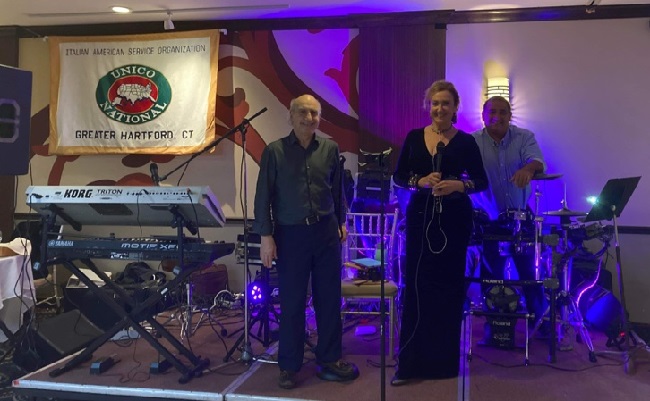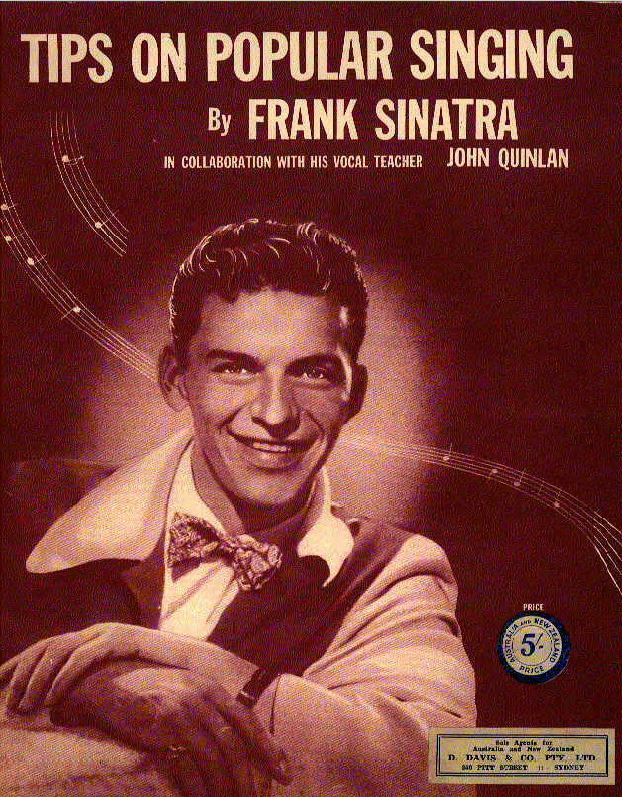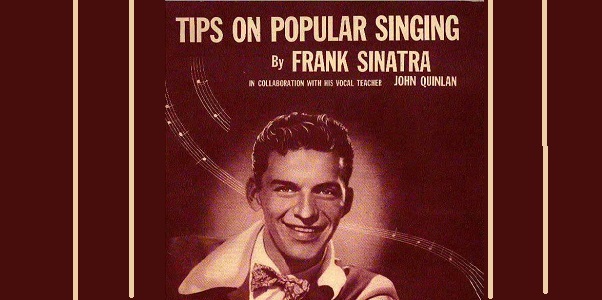From the holy chant to the soothing lullaby, to the healing effects on memory and mood—these describe the powerful impact of the human voice in song. No one knows this better than Italians. If you have any Italian blood at all coursing through your veins you no doubt welcome the slightest excuse to sing your heart out. You likely croon with joy, drama, and emotion; as if on a world stage.

Amongst Italian Americans lived one extraordinary would-be crooner who, from a young age would not be content to confine himself to just singing in the shower or being accompanied by a cousin’s concertina after Sunday dinner. Francis Albert Sinatra wanted “all or nothing at all.” The son of Italian immigrant parents, Frank became so smitten with the idea of becoming a singing success, that this burning passion guided his efforts and fueled his resilience no matter how many times he was knocked down over the years. He eventually became one of the greatest legends in music history, not only for his golden, dreamy voice but for his exemplary work ethic; for the way he denounced bigotry and negative stereotypes; and for his rather simple, common-sense strategies for success. “Keep your feet dry and avoid sitting in a draft”, was one of these strategies, as applied to vocalists. How often have we heard this practical advice from our Italian parents or grandparents? In his 1941 book Tips On Popular Singing, Sinatra mentioned this generational wisdom as a sensible way for a singer to care for the throat.
We can learn so many things from the life and legacy of “Ol’ Blue Eyes”, whether you aspire to be a singer or to succeed in any other area in your life. I thought I would share five specific pearls of wisdom that I gleaned from observations I made of the man who did it his “his way”.
- Never Give Up On Your Dream.
From the time he got his first taste of applause after singing at A.J. Demarest High School, young Francis Albert Sinatra knew this was exactly what he wanted to do with his life. Going into music was the opposite of what his Italian immigrant parents wanted for him, in fact, Nancy Sinatra described her grandmother as “crushed” when she realized that her son Frank was not going to become the first college graduate of the family. But Frank had no affinity for schoolbooks and formal learning—not everyone does–and his passion for singing was not going to loosen its hold on him.
Sometimes the fire inside of us speaks so loudly, as it did to Frank, that it fuels us with the strength we need to go against the tide and follow the path we were meant to be on. Other times, as Carl Rogers, father of the Humanistic Psychology movement described, we veer from fulfilling our fullest potential because of “conditions of worth”. In other words, we modify our choices and behaviors based on others’ approval or disapproval of what we do. My experience and training have taught me, however, that it is never too late to get back to the passion and dreams that were put in your heart once upon a time.
- Have a Role Model But Always Be Yourself
In Tips on Popular Singing, Sinatra advises hopeful singers to listen to a lot of music, watch the singers’ mannerisms, observe the enunciation and breathing of various singers; then apply what you learn to form your own uniqueness. Bing Crosby was Sinatra’s role model. Frank was fascinated by the way Crosby crooned, and the audience’s enamoured reaction to his smooth, swaying sound. But while Crosby may have reaffirmed his conviction to be a singer, Frank never wanted to imitate him. Rather, he was smart enough to know that in a sea of Crosby-wanna-be’s of his day, he had to make a unique contribution with his own voice, which he felt was higher than that of the singer who inspired him. Social psychologist Albert Bandura conducted extensive research on the efficacy of learning through observing role models. Yet in the final analysis, while a singer can learn certain vocal and performance techniques by observing other singers, the structure of one’s own vocal tract, resonators, and even one’s personality make it impossible to be a mirror image of anyone else. The unique qualities that each singer brings to the table are what make his/her contribution exquisite.
- Get Whatever Training You Need
Sinatra once told an interviewer that he “couldn’t sing his way out of a paper bag” when he first started out. I doubt that, and in fact, his daughter Nancy, on the Sinatra Family website wrote that no one could teach her father to sing. True, her father had a natural exquisiteness to his voice and inherited the mechanics to produce such a sound. Yet he jumped at the chance when someone suggested he take voice lessons from a teacher named John Quinlan, with whom he later co-authored his vocal technique book. Frank admitted he couldn’t wait to get to his lessons, which he took three times a week at a dollar apiece. Yet, in his book, he advises singers that most popular and successful singers don’t go overboard with training. Beyond a few techniques and exercises, good singing requires good health (e.g., avoid a cold, drink warm water with lemon juice, etc.), patience, and hard work. In other words, practice what you want to become good at. And practice often. Larry King once asked Sinatra why he was always humming. He answered that he was taught that humming brings everything up into the mask so he tried to hum whenever he could. Getting his sound up into the mask the part of the face where resonance carries the sound forward, kept it from being “swallowed” back in the throat, according to Frank.
- Develop Stage Presence
 Despite all his training and hard work, despite the nerves that always got to him in his first few seconds on stage (as he described in an interview with Larry King) he always managed to look smooth, cool, and let his vocals flow effortlessly. Cognitive psychologists call this phenomenon “automaticity”, where, with a lot of hard work and practice, you eventually do something so well you no longer have to concentrate so hard that you can’t do something else at the same time. In his 1528 The Book of the Courtier, Baldassare Castiglione referred to this concept as “sprezzatura”, or the art making the difficult look easy. Frank seemed to effortlessly romance his audiences with the expressiveness of those ocean blue eyes and laid-back gestures that made the young ladies swoon, and the young men wish they could be him. The songs he sang were no longer about a studied amount of resonance or the shaping of vowels (e.g., the sound of “ah” which he warned should always be sung as “uh”), but now became solely about the heartfelt lyrics; the telling of a story, which transported his fans away from their everyday cares to another world.
Despite all his training and hard work, despite the nerves that always got to him in his first few seconds on stage (as he described in an interview with Larry King) he always managed to look smooth, cool, and let his vocals flow effortlessly. Cognitive psychologists call this phenomenon “automaticity”, where, with a lot of hard work and practice, you eventually do something so well you no longer have to concentrate so hard that you can’t do something else at the same time. In his 1528 The Book of the Courtier, Baldassare Castiglione referred to this concept as “sprezzatura”, or the art making the difficult look easy. Frank seemed to effortlessly romance his audiences with the expressiveness of those ocean blue eyes and laid-back gestures that made the young ladies swoon, and the young men wish they could be him. The songs he sang were no longer about a studied amount of resonance or the shaping of vowels (e.g., the sound of “ah” which he warned should always be sung as “uh”), but now became solely about the heartfelt lyrics; the telling of a story, which transported his fans away from their everyday cares to another world.
5. Be Kind
 “The House I Live In” was a short film Sinatra starred in in 1945, meant to counter post-WWII anti-Semitism. He sings a stirring song “That’s America to Me” to a group of school-aged boys who were bullying a Jewish kid. By the end of the song, he had changed their minds and hearts—and for Frank, the idea of dignity and respect for all, regardless of religion, race, and social status, was not just an acting role. He often came to the defense of his co-performer Sammy Davis Jr, at a time when racial discrimination was blatant and diffuse. He stood up for a fan who was refused an autograph from a famous entertainer with whom Frank had been dining. There are numerous examples of how generous and kind he was to his fans and friends alike. That goodness and sincerity came through in his music. There is no doubt that kindness and compassion go a long way no matter what your profession.
“The House I Live In” was a short film Sinatra starred in in 1945, meant to counter post-WWII anti-Semitism. He sings a stirring song “That’s America to Me” to a group of school-aged boys who were bullying a Jewish kid. By the end of the song, he had changed their minds and hearts—and for Frank, the idea of dignity and respect for all, regardless of religion, race, and social status, was not just an acting role. He often came to the defense of his co-performer Sammy Davis Jr, at a time when racial discrimination was blatant and diffuse. He stood up for a fan who was refused an autograph from a famous entertainer with whom Frank had been dining. There are numerous examples of how generous and kind he was to his fans and friends alike. That goodness and sincerity came through in his music. There is no doubt that kindness and compassion go a long way no matter what your profession.
Whether you aspire to be a singer or achieve success in any area of life, these simple, straightforward insights from the life of one of the greatest singers of all time, can be seen as a valuable set of tools from which we might all benefit, in making our own lives more “dolce”.





